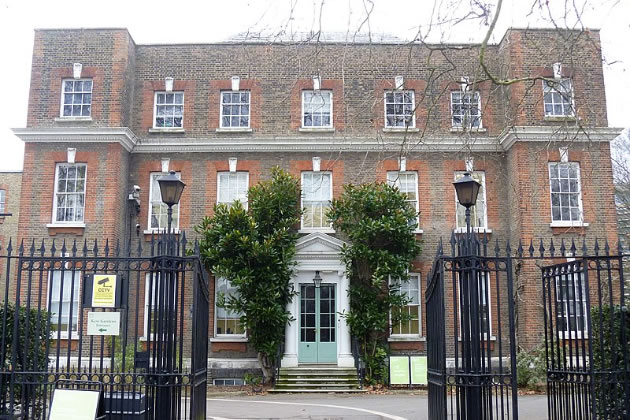Historic Document Could Save Kew Herbarium
Original bequest stipulates that collection must not be moved
 Kew Herbarium. Picture: Michael Dibb
Kew Herbarium. Picture: Michael Dibb
|
November 23, 2023
Campaigners hoping to thwart plans to move the collection of the Kew Herbarium to Reading have received a boost following the discovery of a document in Kew Archives.
The current management of the Royal Botanic Gardens had announced plans to relocate the plant library to Thames Valley Science Park which it says has facilities more suitable for studying the collection.
According to a report in the Daily Telegraph, the original bequest to the Royal Botanic Gardens made by Sir William Hooker states that the collection must remain at Kew Gardens.
The discovery was made by Isobel Moses who is a direct descendant of Sir William. The botanist was the first ever director of the gardens who built the Palm House and opened up more of the site to the public. He donated his own collection to the Herbarium which now holds more than seven million specimens dating back to the 17th century. It includes 90% of the world’s plant diversity with 30,000 samples added every year and includes a Galapagos fern collected by Charles Darwin and plants from the East India Company from the beginning of the tea trade.
The intention of the bequest is confirmed in a letter to the government from Sir William’s son, Sir Joseph Hooker, who was a friend of Charles Darwin as well as also being a director at Kew. In the letter he states that his father’s last wishes were that the collection should remain there ‘in perpetuity’.
The Telegraph quotes legal experts as saying that these documents “go a long way towards being a contract between his executors and the government”.
Mrs Moses said, “The proposed move makes no sense whatsoever, and would remove a key part of Kew from the rest of its activities, at a time of increasing concern about the dire effects of global warming.”
However existing staff, 84% of whom oppose the move, say that the collection will be damaged and result in overseas donors taking back species they have given to the collection. Employees at Kew claim that the collection needs to be close to the live species to enable proper study.
A spokesman for Royal Botanic Gardens said, “Our plans for a modern, purpose-built and state-of-the-art facility for our world-leading collection will not only maintain Britain’s historic position in botanical research and innovation but will also ensure the secrets of these specimens can be unlocked in the future, leading to potential discoveries for repairing our fragile planet.”
Like Reading Articles Like This? Help Us Produce More This site remains committed to providing local community news and public interest journalism. Articles such as the one above are integral to what we do. We aim to feature as much as possible on local societies, charities based in the area, fundraising efforts by residents, community-based initiatives and even helping people find missing pets. We've always done that and won't be changing, in fact we'd like to do more. However, the readership that these stories generates is often below that needed to cover the cost of producing them. Our financial resources are limited and the local media environment is intensely competitive so there is a constraint on what we can do. We are therefore asking our readers to consider offering financial support to these efforts. Any money given will help support community and public interest news and the expansion of our coverage in this area. A suggested monthly payment is £8 but we would be grateful for any amount for instance if you think this site offers the equivalent value of a subscription to a daily printed newspaper you may wish to consider £20 per month. If neither of these amounts is suitable for you then contact info@neighbournet.com and we can set up an alternative. All payments are made through a secure web site. One-off donations are also appreciated. Choose The Amount You Wish To Contribute. If you do support us in this way we'd be interested to hear what kind of articles you would like to see more of on the site – send your suggestions to the editor. For businesses we offer the chance to be a corporate sponsor of community content on the site. For £30 plus VAT per month you will be the designated sponsor of at least one article a month with your logo appearing if supplied. If there is a specific community group or initiative you'd like to support we can make sure your sponsorship is featured on related content for a one off payment of £50 plus VAT. All payments are made through a secure web site. |